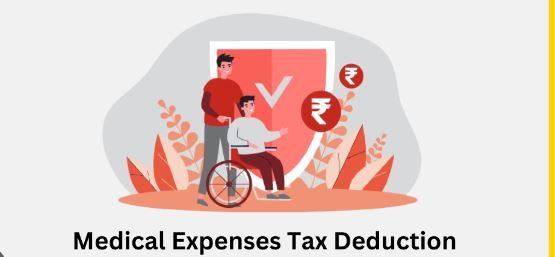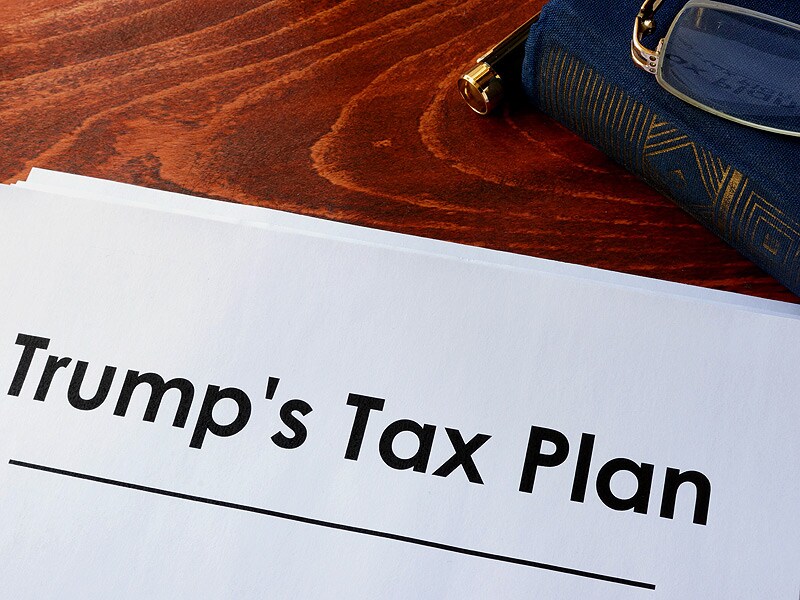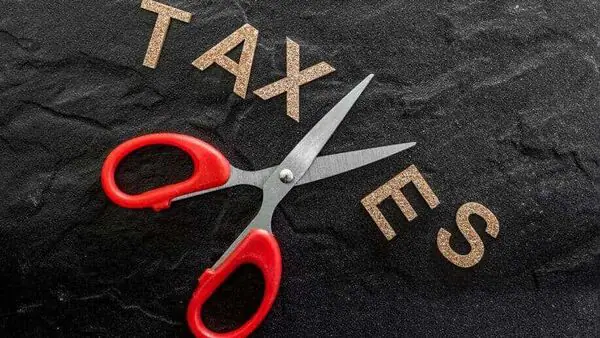Navigating taxes and financial management can be overwhelming for doctors. To maximize deductions and minimize tax liability, it’s crucial to understand the specific tax benefits available to you. In this blog, we’ll explore tailored tax-saving strategies for doctors. From optimizing business expenses to leveraging specialized provisions, we’ll provide practical tips to save you money and allocate resources wisely. Join us as we uncover strategies to keep your financial foundation strong, just like the patients you care for.

Doctors Pay Greater Than Their Honest Percentage in Taxes
Tax planning for doctors permits them to take benefit of all the tax breaks, tax credits, and tax exemptions that Congress and the Internal Revenue Service (IRS) will permit. These tax breaks and tax strategies can help doctors lower the amount of their pay that is taxed.
What will the Trump Tax Plan Mean for Doctors?
The Tax Cuts and Jobs Act, which was signed into law by President Trump, will end in 2025. Here is a list of what it means for doctors until then:

Most medical doctors can pay fewer taxes
Unbelievable, right? But an examination from The Tax Foundation suggests that an own circle of relatives with kids and $325,000 in earnings might store about $6,000.
Doctors in quality places will advantage a charge for more
Since the state and local income tax deduction, or “SALT deduction,” is now limited to $10,000 for joint filers, doctors in high-tax states like California, Oregon, New York, and New Jersey will lose kingdom earnings tax deductions, on the way to boom their general tax bills.
If you live in a high-tax state and your business is a Subchapter S corporation
Your LLC is taxed as an S-corp, see if you can set up a SALT cap workaround. Many states have passed laws that let you, as the owner of a pass-through business, pay your personal income tax through your business. This way, the taxes are passed through as a business cost instead of a personal deduction. This lets you get around the $10,000 limit on claims for state and local income taxes (SALT).
Estate taxes are almost completely gone
Since the federal estate tax level has been raised to more than $22 million (joint filers), there is almost no chance that physician families will ever have to pay the federal estate tax. Since the gift tax exclusion amount is part of the federal estate tax law, every family that is subject to the $17,000 for 2023 per year limit on gifts, including contributions to 529 college savings plans, will get some relief. This change makes it easier and cheaper to plan for taxes regarding an estate.
How doctors keep away from paying excessive taxes
Utilize multiple tax-favored savings accounts
By diversifying your savings across various tax-advantaged accounts, such as retirement plans or health savings accounts (HSAs), you can reduce your taxable income and save for future expenses.

Consider a 529 plan for university savings
Opening a 529 plan account lets you store your kid’s training while enjoying potential tax advantages, such as tax-free growth and withdrawals for qualified educational expenses.
Deduct business-related costs
If you own a business or work part-time, take advantage of deducting all eligible business expenses, such as office supplies, equipment, or professional development, to lower your taxable income.
Weigh long-term gains against short-term gains
When making investment decisions, consider the tax advantages of long-term capital gains, which are typically taxed at lower rates compared to short-term gains. This can bring about considerable tax financial savings over time.
Donate investments for charitable contributions
Instead of donating cash, consider giving appreciated investments, such as stocks or mutual funds. This allows you to potentially avoid capital gains taxes while still supporting charitable causes.
By implementing these tax strategies, doctors can minimize their tax burden and optimize their financial situation. However, it’s crucial to consult with a tax professional to ensure compliance with tax laws and take advantage of all available deductions and credits.
Top Tax Issues for Doctors in 2023
Like the last big tax reform, which was passed in 1986, this new law closes many loopholes and makes it even harder (if not impossible) to “work the system.”

Here are some tax plans to think about for 2023:
- Put all of your receipts for charity together. Since the standard deduction for married doctors has gone up to $27,700 by 2023, you may not be able to save money by giving smaller amounts to charity. To get around this, you might want to give one bigger gift every two years. Consider giving stocks that have gone up in value to a donor-advised fund to get a big tax break this year. You can then give smaller amounts to charity from the fund over the next few years.
- When you refinance your home, be careful. For debts that started on or after December 15, 2017, you can only deduct the interest on the first $750,000 of debt. If you refinance more than this amount, talk to your Certified Public Accountant (CPA) to make sure you don’t lose a big part of your deduction. Also, you can only subtract the interest on a home equity line of credit if it was used to buy or improve your home.
- Pay for private school with your 529 college savings plan. The new tax bill lets physician families use Section 529 assets to pay up to $10,000 per child per year for private K–12 schooling. In places where you can get a tax break for putting money into a 529 plan, you can save money and then use it to pay for private school. Older doctors might set up 529 plans for their grandkids to pay for all of their schooling before they go to college.
- Take care of your work income. Self-employed doctors with “pass-through” entities, such as sole proprietorships, partnerships, S-corps, and LLCs taxed as S-corps or proprietors, should talk to their CPA early in the year to handle their qualified business income (QBI). Because the rules are so complicated, planning by rule of thumb won’t work. Instead, you need custom tax planning methods and projections.
How can Doctors Reduce Their Taxes?
Doctors can pay less tax by carefully planning their taxes to lower their taxable income, getting all of their allowed deductions, and making sure that these breaks don’t get phased out. Some common deductions are:
Payments to retirement plans, like a 401(k), 403(b), or 457 plan, before taxes, are taken out. In some cases, payments to a Traditional IRA can be made before taxes are taken out. Many doctors might not be capable of deducting their IRA contributions, so they could need to consider a “backdoor Roth IRA contribution” plan.
Donating money or used items to charity can help you save on taxes, However, maximum docs overlook they also can provide shares from their taxable accounts. By giving away stocks that have gone up in value, doctors get a tax deduction for the gift and avoid the capital gain tax on the sale.

Tax-loss harvesting is when a lost investment in a taxable account is sold on purpose to take advantage of the loss. Even though this might not sound good, doctors can use the first $3,000 of their losses to offset their regular income. This saves the average doctor between $1,000 and $1,500. Do you have more than $3,000 in losses? No problem. Losses that are more than $3,000 can be used in the future until the total amount is used up.
Mortgage interest is a common tax deduction for doctors, especially those with big houses and big mortgages. Doctors can also claim up to $100,000 in interest on a home equity line of credit (HELOC) that was used to buy or fix up a house.
All of these benefits have limits, so doctors should talk to their tax experts for help.
How much tax do Doctors Pay?
The amount of tax doctors pay in the USA varies based on factors such as income, filing status, and deductions. Doctors typically fall into higher income brackets and may be subject to higher tax rates. Self-employment taxes may apply if they operate their own practice. State and local taxes also play a role. Consultation with a tax professional is recommended for personalized advice.
Editor’s Choice:
How Tax Planning Makes a Difference
The Benefits of Hiring a Taxation Specialist in the New Year





Leave a Reply
Want to join the discussion?Feel free to contribute!